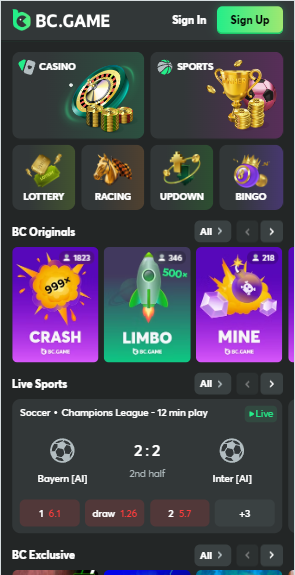
Understanding the Legal Framework of Online Gaming with BC Fun Legal
In an age where online gaming has become an integral part of entertainment for millions, ensuring that players are protected by law is crucial. This is where BC Fun Legal BC.Fun legal comes into play. This platform aims to provide a comprehensive understanding of the legal aspects related to online gaming, making sure that both operators and players are aware of their rights and obligations.
The Rise of Online Gaming
Over the past decade, online gaming has seen an exponential rise in popularity, fueled by advancements in technology, greater internet accessibility, and the expansion of mobile gaming. As more players engage with online games, the need for a robust legal framework becomes ever more critical. Various jurisdictions around the world have begun to update and enforce regulations to ensure fair play, protect consumer rights, and manage the risks associated with gambling.
Why Legal Frameworks Matter
The legal framework surrounding online gaming is built on the premise of accountability and protection. This ensures that players are participating in a safe environment, where their rights are safeguarded, and where operators are held to regulations that promote fairness and transparency. Laws and regulations often cover a range of areas, including:
- Licensing and regulation of gaming operators
- Consumer protection laws
- Anti-money laundering measures
- Fair play and responsible gaming initiatives
Key Components of Online Gaming Laws
When discussing online gaming legality, it’s essential to recognize some of the key components that define it. Let’s delve deeper into these aspects:
1. Licensing and Regulation
Each jurisdiction has specific licensing requirements for online gaming operators to follow. Obtaining a license from a reputable authority not only legitimizes an operator but also provides assurance to players that the gaming environment is regulated and monitored. Authorities may impose strict criteria around operational integrity, ensuring that operators adhere to predetermined standards.

2. Consumer Protection
Consumer protection is a critical element in online gaming laws. This aspect focuses on ensuring fair treatment of players through clear terms and conditions, transparent withdrawal procedures, and measures to prevent fraud. It also emphasizes responsible gaming, promoting awareness about the potential risks associated with gambling.
3. Age Verification
To prevent minors from participating in online gambling, many jurisdictions enforce strict age verification processes. Operators must implement robust checks to ensure that they only accept players who meet the legal age requirement.
4. Responsible Gaming Initiatives
Responsible gaming policies are designed to promote safe gaming practices and minimize addictive behaviors. Operators often provide tools such as deposit limits, self-exclusion, and access to support services for those who may be struggling with gambling problems. The role of organizations like BC Fun Legal is pivotal in raising awareness around these initiatives.
The Importance of Compliance
Compliance with gaming laws is non-negotiable for online gaming operators. Failure to adhere to these regulations can result in severe penalties, including fines, revocation of licenses, and even criminal charges. This reality highlights the need for operators to maintain a thorough understanding of the laws in the jurisdictions they operate within.
Global Perspectives on Online Gaming Legislation
The approach to online gaming legislation varies significantly from region to region. Let’s explore a few examples:
1. United States

In the U.S., the legal landscape for online gaming has evolved considerably in recent years. While the federal government initially had a restrictive stance, individual states have begun to legalize and regulate online casinos and sports betting. This fragmentation of laws requires operators to carefully navigate a complex web of regulations, and they must be aware of which states permit online gaming and under what terms.
2. European Union
The European Union (EU) presents a more unified approach to online gaming, although individual member states maintain their sovereignty over gaming laws. The EU emphasizes consumer protection, fair competition, and adherence to strict regulatory standards, making it easier for operators to understand their responsibilities across different countries while giving players greater confidence in the gaming process.
3. Asia
In Asia, online gaming legislation varies widely. Countries like Japan and South Korea impose significant restrictions on online gambling, whereas others like the Philippines have developed a regulatory framework that encourages growth in the sector. Understanding the diverse regulations in this region is essential for any operator looking to enter the Asian market.
The Role of BC Fun Legal in Online Gaming
BC Fun Legal serves as a vital resource for both players and operators. By providing insights into the legal requirements, rights, and best practices associated with online gaming, the platform empowers stakeholders to make informed decisions. Whether you are a player seeking to understand your rights or an operator concerned with compliance, BC Fun Legal offers valuable guidance and support.
Final Thoughts
As the online gaming sector continues to grow, the importance of legal compliance, consumer protection, and responsible gaming cannot be overstated. Initiatives like BC Fun Legal pave the way for a healthier gaming environment, protecting both players and operators alike. It is imperative for everyone involved in the industry to stay informed and engaged with the evolving legal landscape to ensure a fair and secure gaming experience for all.
